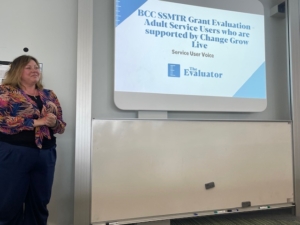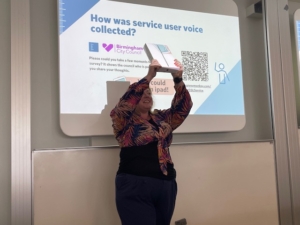Process Evaluation
At The Evaluator, we specialise in process evaluations that provide organisations with a clear understanding of how their work is being delivered and where it can be optimised. Our approach focuses on uncovering what’s working well, identifying challenges, and refining processes to maximise effectiveness. By examining implementation, decision-making, and operational dynamics, we help organisations strengthen their approach in real-time rather than waiting until a project’s end. Our evaluations are designed to be practical and insightful, offering clear recommendations that enhance efficiency, improve delivery, and ensure resources are being used to their full potential.
What makes our process evaluations stand out is our commitment to making them both reflective and action-driven. We don’t just map out workflows—we identify opportunities for streamlining, innovation, and growth. We work closely with organisations to ensure that their processes are not only effective but also sustainable and scalable. By embedding evaluation within delivery, we enable teams to adapt quickly, build resilience, and drive continuous improvement. Our evaluations turn operational insights into strategic advantages, helping organisations refine their work, strengthen their impact, and deliver with even greater confidence.
We know that setting up new teams can be tricky at first, and have developed tools which not only evaluate projects, but also help you during the project itself. We offer the following, in larger projects, to keep you on track:
Monitoring support and tools
Monitoring your activity is essential because it ensures that your efforts are making an impact and that you’re using your resources effectively. Without a clear way to track progress, it’s easy to lose sight of what’s working well and where adjustments are needed. That’s why we provide monitoring spreadsheets that offer a quick, at-a-glance overview of key metrics, making it simple to see trends, spot challenges, and identify opportunities for growth. These tools help you stay focused, prioritise your time and energy, and make informed decisions based on real data. Whether it’s tracking outputs, engagement, or project milestones, our monitoring systems empower you to stay on course, adapt when needed, and ultimately achieve greater success.
Innovative process measurement
The Reflex Survey system designed by The Evaluator is a brilliantly simple yet highly effective way to track team progress in real-time. By implementing regular self-assessment measures, the programme team can quickly reflect on their work, providing a gut-reaction assessment rather than an over-analysed response. This allows for a more accurate and honest snapshot of how the project is evolving. The inclusion of the Forming, Storming, Norming, and Performing (FSNP) framework ensures that team dynamics and project challenges are recognised, allowing leadership to identify patterns, pinpoint challenges, and celebrate progress. By aligning these team insights with feedback from the board and steering group, the Reflex Survey ensures a balanced, multi-level perspective on the programme’s development.
One of the most powerful aspects of this system is its flexibility and responsiveness. Unlike traditional assessments that assume linear progress, the Reflex Survey acknowledges that teams may move back and forth between phases, adapting to new challenges as they arise. The data from the team’s assessments demonstrates this in action – here is an example “an initial dip in scores reflects the complexity of external challenges, while the sharp rise to ‘norming’ in January highlights the team’s resilience and adaptability.” This real-time insight allows for targeted support, proactive problem-solving, and a deeper understanding of team dynamics, making it an invaluable tool for monitoring project health and guiding strategic decisions.
Whether you’re just starting out or looking to strengthen an existing project, our process evaluation tools are designed to support you every step of the way. We bring clarity, insight, and momentum—helping your team stay aligned, adapt quickly, and deliver impact with confidence. If you’re ready to gain a deeper understanding of how your work is unfolding and how it can be even more effective, we’d love to talk. Get in touch with us today – info@theevaluator.co.uk or call 01756 532 538, to explore how we can tailor our approach to fit your needs and elevate your project from the inside out.


